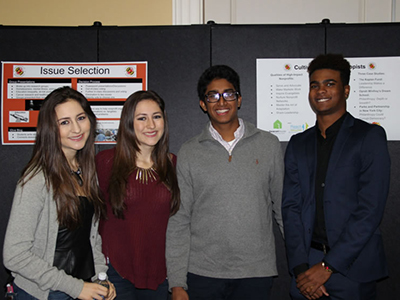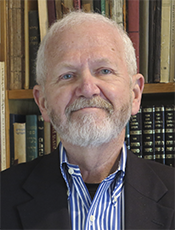Riots
When and how can riots be morally justified?
 Riots frighten us. They destroy so much and leave legacies of hate. But riots also give voice to the persecuted and disadvantaged. Martin Luther King, Jr., who promoted non-violence, nevertheless called a riot the "language of the unheard." In this community we will explore riots from ancient times to last week and explore how societies deal with violence in the public space.
Riots frighten us. They destroy so much and leave legacies of hate. But riots also give voice to the persecuted and disadvantaged. Martin Luther King, Jr., who promoted non-violence, nevertheless called a riot the "language of the unheard." In this community we will explore riots from ancient times to last week and explore how societies deal with violence in the public space.
You can expect to:
- Develop your skills of critical analysis and hone your presentation skills to make convincing moral arguments about society.
- Grapple with how religious, economic, and ethnic differences can rip the social fabric.
- Work with others to learn about, describe, and explain riots in cities around the world and in the U.S.
- Work in teams to interpret and present findings about riots, both past and present.
Community Course
HIST135/JWST289E – Civil Discourse or Urban Riot: Why Cities Don't (Often) Explode. The course looks for conditions that have led to violence in urban settings and tries to determine why normally peaceful co-existence so frequently collapses. We will draw examples from all over the world, but will focus especially on struggles in the modern Middle East and in the United States. Using contemporary sources as well as films and other fictional narratives, we will interrogate how we shape our own notions of social peace and discord. (3 credit course, fulfills General Education requirements of I-Series, History and Social Sciences, and Understanding Plural Societies).
View a sample syllabus.
Instructor
 Bernard Cooperman a specialist in the history of the Jewish people in early modern Italy, has been at the University since 1989. He has been invited to teach and lecture all over the world, from Moscow to Rome, from Jerusalem to Boston and San Diego. At Maryland, he served as Director of the Meyerhoff Center for Jewish Studies and the Miller Center for Historical Studies. His many articles have investigated the economic, social, and cultural history of Jews over the centuries, and he is presently at work on a biographical essay about his mother who, as a teenager, lived through the bloody riots in The Ukraine during the Civil War of 1917–1919.
Bernard Cooperman a specialist in the history of the Jewish people in early modern Italy, has been at the University since 1989. He has been invited to teach and lecture all over the world, from Moscow to Rome, from Jerusalem to Boston and San Diego. At Maryland, he served as Director of the Meyerhoff Center for Jewish Studies and the Miller Center for Historical Studies. His many articles have investigated the economic, social, and cultural history of Jews over the centuries, and he is presently at work on a biographical essay about his mother who, as a teenager, lived through the bloody riots in The Ukraine during the Civil War of 1917–1919.